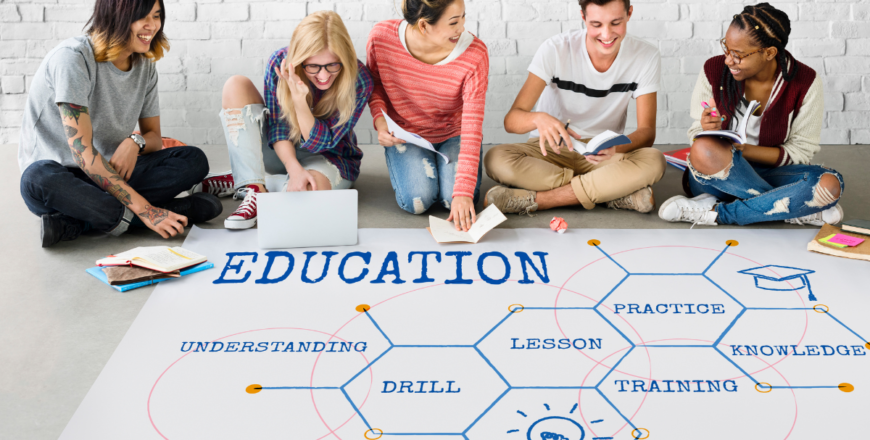
- Description
- Curriculum
- Reviews
Overview
Our Academic Skills and Study Strategies course is a structured, 12-week program designed to empower students with the core skills needed for academic success. This course focuses on teaching practical techniques in time management, note-taking, critical thinking, research, and exam preparation, all through concise, 30-minute weekly sessions. Ideal for high school, college, and university students, this course will give you the tools to approach your studies with confidence, effectiveness, and efficiency.
Course Goals
The primary objective of this course is to help students:
- Develop a systematic approach to studying and time management.
- Master essential skills such as reading comprehension, note-taking, and academic writing.
- Cultivate critical thinking and analytical skills for evaluating information.
- Learn techniques to enhance memory, reduce test anxiety, and improve exam performance.
- Build confidence in presenting ideas and arguments effectively.
By the end of the course, students will have a personalized toolkit of strategies and skills they can rely on for lifelong learning and academic success.
Course Structure and Weekly Outline
Each week covers a key academic skill, structured to be impactful in just half an hour. The sessions blend concise instruction with practical tasks, helping students apply what they learn immediately. Here’s a detailed breakdown of each week’s topic:
Week 1: Introduction to Academic Skills and Goal Setting
- Students start by identifying their current academic challenges and setting SMART goals to guide their learning journey.
- Task: Define three specific academic goals and outline an action plan for each.
Week 2: Time Management and Prioritization
- This session teaches time-management techniques, including the Eisenhower Matrix and Pomodoro Technique, essential for prioritizing tasks and staying organized.
- Task: Develop a weekly study schedule to manage academic and personal responsibilities.
Week 3: Effective Note-Taking Techniques
- Learn the Cornell Note-Taking System and other methods, like mind mapping, to create structured, efficient notes that enhance retention.
- Task: Practice Cornell-style note-taking on a lecture or reading passage.
Week 4: Reading Strategies for Better Comprehension
- Discover reading techniques such as skimming, scanning, and critical reading to improve comprehension of academic texts.
- Task: Apply the SQ3R (Survey, Question, Read, Recite, Review) method to a chosen academic text.
Week 5: Memory Techniques for Retention
- Explore proven memory techniques like mnemonics, visualization, and spaced repetition to aid information retention.
- Task: Create a mnemonic for a key concept in your studies.
Week 6: Research Skills and Information Gathering
- Gain a foundation in research skills, including finding credible sources and using online databases effectively.
- Task: Research a topic using academic databases and evaluate three credible sources.
Week 7: Academic Writing Essentials
- Develop a solid understanding of essay structure and academic writing basics, including crafting strong thesis statements and topic sentences.
- Task: Draft an outline for an academic essay on a topic of interest.
Week 8: Critical Thinking and Analysis
- Learn to evaluate arguments critically, identify assumptions, and recognize biases, essential for academic analysis.
- Task: Analyze a short article to identify its main arguments and any inherent biases.
Week 9: Presentation Skills
- This session covers the fundamentals of organizing and delivering an engaging presentation, with tips to reduce anxiety.
- Task: Prepare and deliver a brief presentation on a topic of your choice.
Week 10: Test-Taking and Exam Preparation Strategies
- Discover techniques for effective exam preparation, including creating study guides, practicing under timed conditions, and managing test anxiety.
- Task: Design a personalized study guide for an upcoming test.
Week 11: Stress Management and Self-Care for Students
- Learn relaxation and self-care techniques to manage academic stress, balance responsibilities, and maintain well-being.
- Task: Try a stress-relief technique, such as mindfulness or deep breathing, and reflect on its impact.
Week 12: Review and Future Planning
- Reflect on the skills learned, review achievements, and set new academic goals for ongoing improvement.
- Task: Establish two new academic goals based on skills learned and create a short action plan.
Materials Provided
Each week includes downloadable resources and templates to help students integrate skills into their daily routine, such as:
- Note-Taking Templates: For Cornell and mind mapping techniques.
- Study Schedules: Weekly planners to optimize time management.
- Reading Guides: SQ3R and other comprehension strategies.
- Research and Writing Aids: Guides to academic databases, thesis writing, and essay structuring.
- Exam Preparation Tools: Study guide templates, practice tests, and relaxation exercises.
Support and Feedback
To ensure a meaningful learning experience, we provide:
- Weekly Reflections: Students are encouraged to journal their learning experience, allowing them to track progress and stay engaged.
- Mid-Course Check-In: In Week 6, students submit a brief reflection on their progress and challenges, and receive personalized feedback to address any concerns.
- Final Project: In the last week, students create a study plan or academic project using the skills learned, with feedback provided by an instructor.
Completion Certificate
Students who complete all sessions and tasks will receive a Certificate of Completion and a personalized assessment highlighting their strengths and areas for further growth. This certificate recognizes their commitment to academic improvement and can be a valuable addition to their academic portfolio.
Benefits of the Course
By the end of this course, students will have:
- A solid foundation in essential academic skills to support them throughout their education.
- A personalized set of techniques for studying, critical thinking, and managing academic stress.
- Greater confidence in approaching exams, presentations, and research assignments.
- Improved time management, allowing them to balance academic and personal responsibilities effectively.
Our Academic Skills and Study Strategies course offers a holistic approach to academic success, designed to help students perform at their best and develop skills that will benefit them for years to come.









